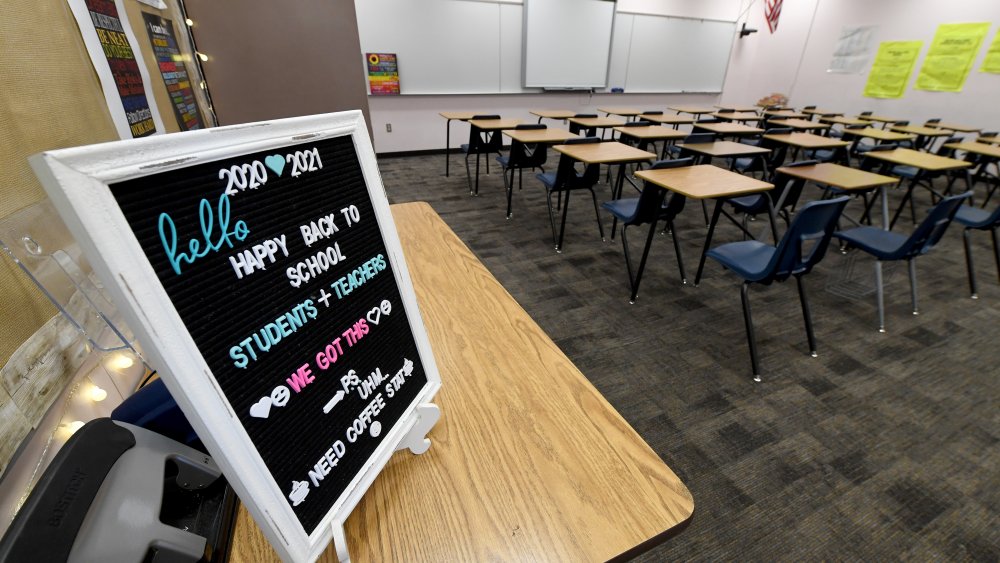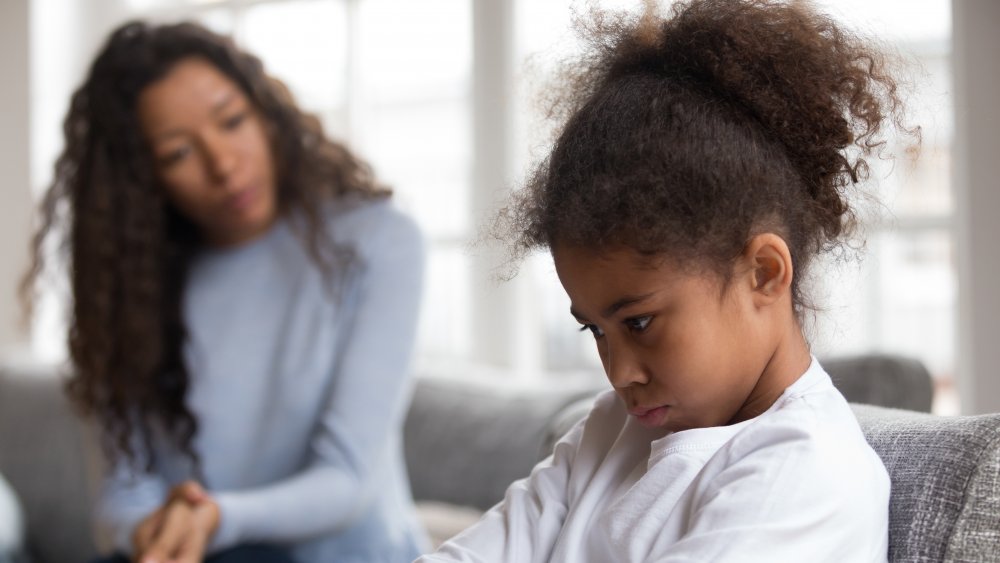The Hidden Cost Of Coronavirus-Related School Closing
If you find images of empty classrooms depressing, that's because they are: New research from Anhui Medical University in China published in JAMA Network Open found that primary school students experienced more depressive symptoms and racked up more suicide attempts after schools shut down due to the pandemic. Turns out not having access to friends and the broader school community can have dire effects on students' mental health — something all parents should keep in mind when weighing the decision to keep kids home from school for an extended period.
The study of 1,241 students in grades 4 through 8 found that the number of children experiencing depressive symptoms rose from roughly 1 in 5 to 1 in 4, with suicide attempts more than doubling after forced isolation (via CNN). This is consistent with the American Academy of Pediatrics back-to-school recommendations that were updated in August, which state, "Lengthy time away from school and associated interruption of supportive services often results in social isolation, making it difficult for schools to identify and address important learning deficits as well as child and adolescent physical or sexual abuse, substance use, depression, and suicidal ideation."
Furthermore, the AAP points out, "The disproportionate impact this has had on Black, Latinx, and Native American/Alaskan Native children and adolescents must also be recognized." Students with special needs are also at risk of being disproportionately impacted, according to the organization.
Here's how to quell your child's anxiety
While the American Academy of Pediatrics "strongly advocates that all policy considerations for the coming school year should start with a goal of having students physically present in school," it acknowledges that the uncontrolled spread of COVID-19 in certain parts of the country make it difficult to implement. To help mitigate the impact, humanitarian aid organization UNICEF recommends preparing your child by talking about the possibility of another shutdown ahead of time. Also point out other ways your kid can socialize, be it through voicing opinions in an online forum or participating on gaming sites. Drawing provides another outlet for expressing emotions, while exercise videos that get kids moving can also provide a much-needed boost of the feel-good hormone dopamine (via UNICEF).
"COVID-19 may be impacting your child's mental health, and it's important to demonstrate that it's normal and OK to feel overwhelmed at times," states the group. "When in doubt, empathy and support are the way to go." Keeping a routine also helps, according to Neha Chaudhary, M.D., a child and adolescent psychiatrist at Harvard Medical School and Massachusetts General Hospital (via ABC News). "Routines can be like swaddles for the mind, keeping thoughts and anxieties contained so that they don't spin and grow," she says.


